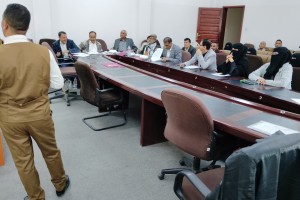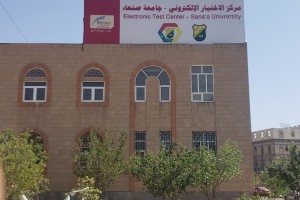Master’s Degree Awarded to Ms. Shorouq Abdulaziz Mohammed Al-Olofy
- Posted by كلية اللغات جامعة الصنع
- Categories news
- Date June 17, 2025
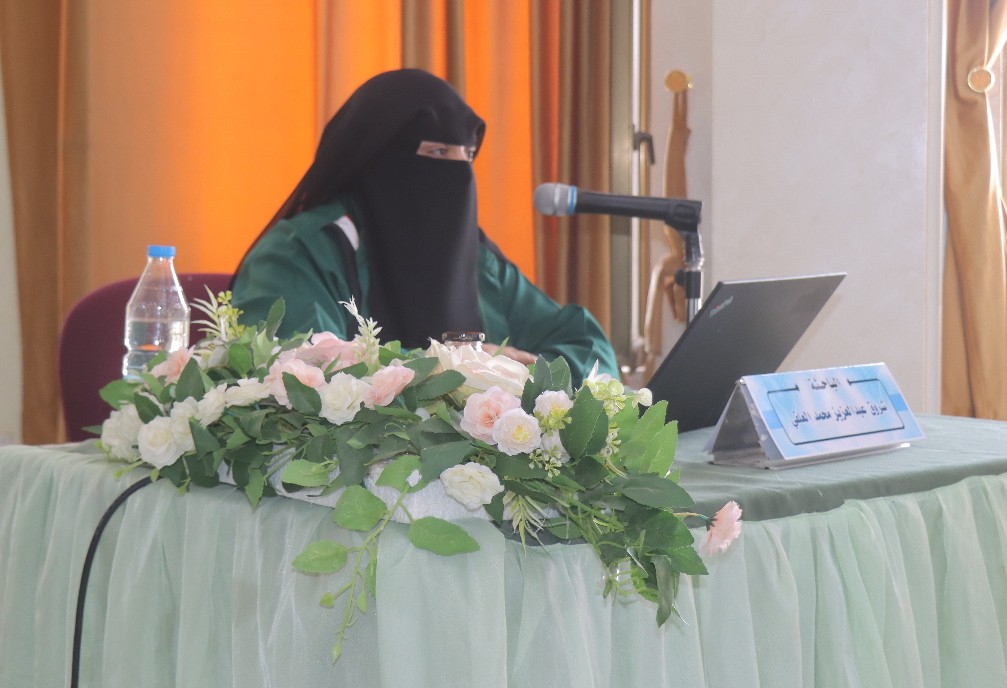
Ms.Shorouq Abdulaziz Mohammed Al-Olofy was awarded a Master’s degreewith anaverage of (Excellent) for her thesis titled “Investigating the Translation of English to Arabic Legal Documents Submitted to the Yemeni Courts: A Case Study of Selected Documents from the Commercial Court of First Instance in Sana’a,”which was submitted tothe Department of English, Faculty of Languages – Sana’a University. The MA defense was held on Thursday, Dhu al-Hijjah 29, 1446 Hijri, corresponding to May 29, 2025.
The MA Viva-voceCommittee, which was formed based on a resolution issued by the Post-Graduate Studies and Scientific Research Council, consisted of the following:
# | Committee Members | Designation | University | Position |
1 | Assoc. Prof. Mujeeb Ali Murshid Qasim | Internal examiner | Sana’a University | Chair |
2 | Assoc. Prof. Abdullah Ali Mohammed Al-Eryani | External Examiner | Thamar University | Member |
3 | Assoc. Prof. Mohammed Ahmed Hasan Sharafuddin | Main supervisor | Sana’a University | Member |
The thesis aimed to:
- Categorize the types of legal documents translated from English to Arabic (E-A) and submitted to the Commercial Court of First Instance (CCFI) in Sana’a.
- Identify the certification status of translation service providers responsible for these legal documents.
- Evaluate the overall quality of the translation of these legal documents.
The thesis yielded several significantfindings, including:
The Commercial Court of First Instance in Sana’a receives various types of legal documents, classified according to their nature and legal function. The court does not exclusively rely on certified translators, with legal translations being submitted by both certified and non-certifiedtranslators. While the overall translation quality is acceptable, recurring errors in accuracy, terminology, and fluency highlight the need for improvement and more stringent quality control procedures. This study also stresses the importance of clearer regulations for translator certification to mitigate potential legal risks.
The thesissuggestedseveralkeyrecommendations:
- Establish a national certification system for legal translators to ensure that only qualified specialists undertake legal translations.
- Standardize legal translation practices by obliging courts, particularly the Commercial Court of First Instance in Sana’a, to rely on certified translation agencies or establish specialized translation departments within the court.
- Enhance translator training and professional development through specialized courses in legal translation, workshops, and collaboration with legal professionals.
- Strengthen legal and institutional frameworks to regulate the legal translation profession and impose penalties for inaccurate translations that could lead to legal disputes.
- Raise awareness of the crucial role of legal translation in judicial and commercial contexts to reduce legal disputes arising from translation errors.
- Encourage further research in legal translation, particularly by expanding the scope of investigation to include other Yemeni courts, analyzing translation challenges, and evaluating legal translation from Arabic to English in judicial contexts.
The thesis was examined and recommended by the Viva-Voce Committee for acceptance and approval. The defense was attended by a number of academics, researchers, students, and interested individuals, in addition to the candidate’s colleagues and family members.
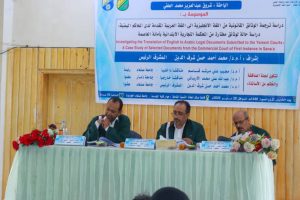
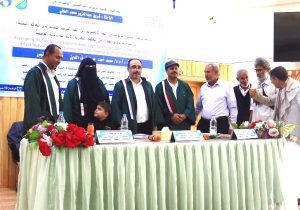
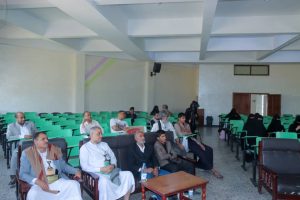
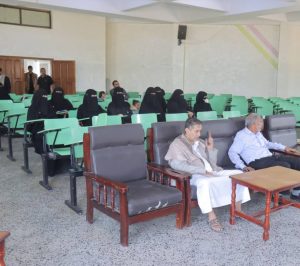
A recorded part of the Viv-Voce session
Previous post
Announcement of a Seminar for the Master’s Thesis Proposal of Mr. Salah Maudha'
You may also like
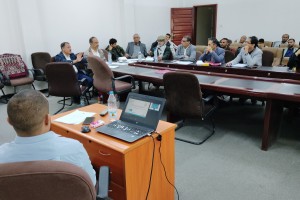
Master’s Thesis Proposal Seminar for Mr. Jehad Mohsen Ahmed Salman
